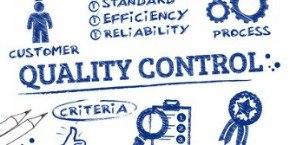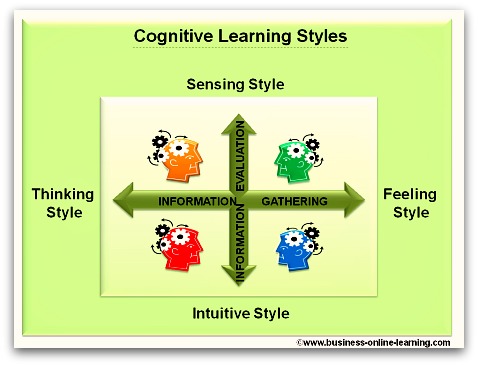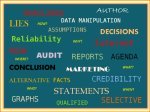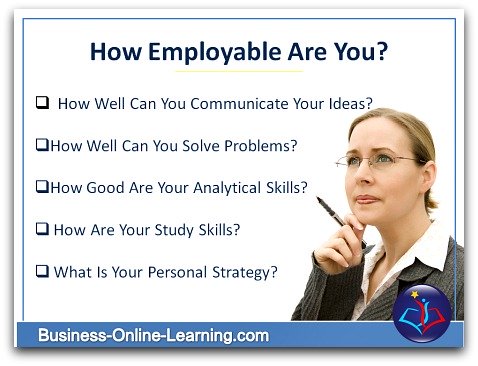Understanding Cognitive Learning Style - Yours And Others.
What type of manager are you?
Understanding Cognitive Learning Styles can make you a better manager. It is one of those issues you will learn about, yet cannot force with a "Oh Mrs O Brien, I understand you are an Information Gatherer!" But believe me, at some stage you will find yourself in a situation where you will reap the benefits of having this understanding.
Now, there seems to be as many models about Manager types and Learning Styles as there are “fish in the sea” but the ideas from Jung (1971) are ones I like a lot.
He developed a model describing a person’s “Cognitive Learning Style” and the influence this would have on management style is huge.
Using this model and looking at your own individual approach to Information Gathering and Information Evaluation, you will understand yourself and others better. Your self-management skills will benefit greatly as well as your understanding of the differences in others.
This does not involve categorization of others but giving you a means to understand and work with other people’s styles in an improved way.
Jung's Scale of Cognitive Learning Style
Jung introduced a scale along which you can estimate where your (or others) approach lies. This shows your cognitive style.
The horizontal axis concerns your approach how you interpret or judge information. Along the vertical axis describes the scale how you will gather information from sensing results or looking intuitively.
For example, are you someone who needs a systematic plan with logical steps? Do you rely on objective data? Do results have to fit into a particular pattern? Then you have a “Thinking Style”.
Or are you known to solve problems according to your “gut feelings”? Do you work a lot on a “trial and error” basis? Do you have difficulties explaining how you came to a particular decision? Do you use metaphors or analogies a lot? If yes, then you have a “Feeling Style”
Do you focus on detail or on the specifics rather than the inter-relationships present between the issues? You are then exhibiting the characteristics of a “Sensing Style”.
Or do you like to look at the whole picture first? Do you tend to generalise a lot? Then you are exhibiting an “Intuitive style”.
How these differences will play themselves out.
The intuitive approach focuses on the complete picture whole the sensing style person will look to parts of the whole.
An intuitive person will look for “common denominators” between topics and will categorise, while the sensing style will look for details, uniqueness and exceptions to the rule.
Getting interested? Read more!
Information Evaluation
Feeling Style |
Thinking Style |
|
Feelings |
Very aware of other people's feelings. |
Rather unemotional and uninterested in other people's feelings. |
|
Harmony |
Seeks harmony, works best when everything is harmonious. Eager to please others even with unimportant things. |
Can do without harmony. Likes analysis and placing things in order. May hurt other people's feelings without noticing. |
|
Decisions |
Often base their decisions on other people's opinions. |
Can be an impersonal decider often ignoring other people's wishes. |
|
Praise |
Need praise. |
Need fair treatment and praise is not that important. |
|
Reprimanding Others |
Dislike having to tell others unpleasant things. |
Are able to hire & fire without much conscience. |
|
Relationships |
Tend to get on well with most people as they are often seen as sympathetic. |
Can usually only get on with other thinkers and are often perceived as hard-hearted. |
Information Gathering
Intuitive Style |
Sensing Style |
|
Problems |
Like solving problems. |
Dislike having to solve problems: unless it is a standardized procedure. |
|
Routine |
Dislikes routine. Are impatient with routine details. |
Work best with an established routine. Love routine details. |
|
Approach To Work |
Work in sporadic bursts of high energy with slacking off between. |
Work at steady pace, pacing themselves well. They work themselves through a topic from start to finish. |
|
Coming To Conclusions |
Frequently jump to conclusions |
Usually work their way through to reaching their conclusions |
|
Dealing With Complicated Situations |
Are very patient - enjoying the challenge of complexity. |
Get impatient when the details become tricky or complicated. |
|
Precision |
Dislike taking time for precision and will often make errors of facts ("Why bother with the details!") |
Are usually great with precise work as they also rarely make errors of facts. ("Get the facts right!") |
Implications Of Your Cognitive Learning Style
First off, very few people will have one of the other style exactly. Usually people will have a dominating and an underlying style; situations will also bring out predominating features. All of this taken into consideration these are the implications for each learning style, both positive and negative.
Sensing Managers:
- Find it hard to set priorities.
- Need to give details loads of attention.
- They won't cope well in chaotic situations and become more stressed out more quickly.
- Good project team members.
- Great workers in routine jobs.
Intuitive Managers
- Get stressed when details are complex or confusing.
- But can handle the larger picture and would make great project leaders.
- They need the sensing manager to manage the details.
Feeling Managers
- They like to try out new approaches; they will redefine problems without looking at previous results or approaches
- This can lead to them focussing on the wrong problem and ignoring tried and tested methods.
Thinking Managers
- Need places where a structured approach is required.
- Can lead in difficult situations where emotions tend to run high.
- Will tend to spearhead projects.
Conclusion to Cognitive Learning Style.
The implications of your cognitive learning style, along with other aspects of
- where your values lie
- what your attitude to change is
- how your personal orientation is
can lead to your own special brand of managing.
By understanding your cognitive learning style, you help yourself and others to:
- Learn new skills (by better studying skills, adapted to your style)
- Choosing the right careers.
- Putting teams together.
- Choosing the right responsibilities.
- Understanding and working with sources of conflict in staff.













 My name is Martha and I have worked for over 30 years in various aspects of business and in various countries, right around the world.
My name is Martha and I have worked for over 30 years in various aspects of business and in various countries, right around the world.